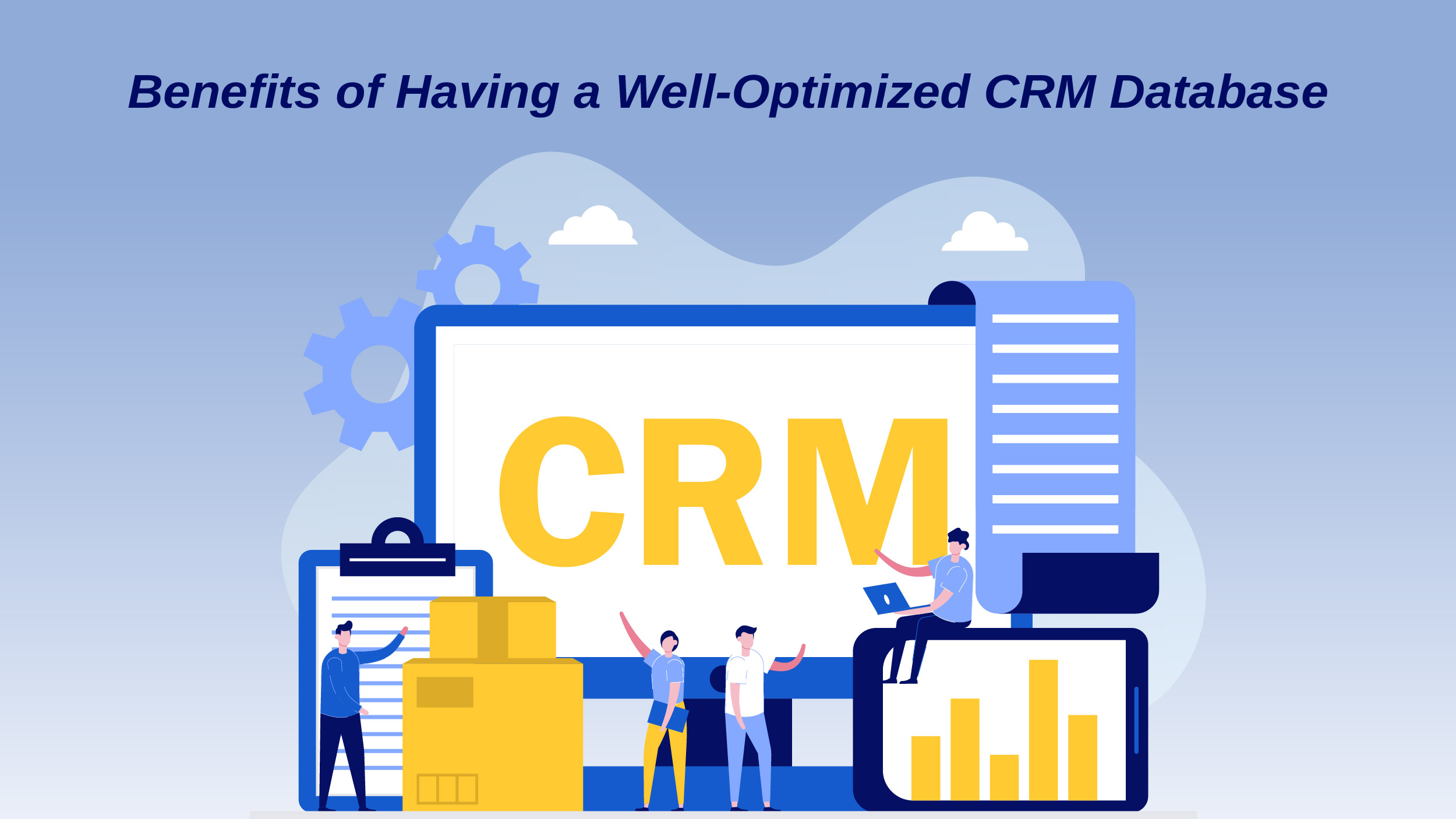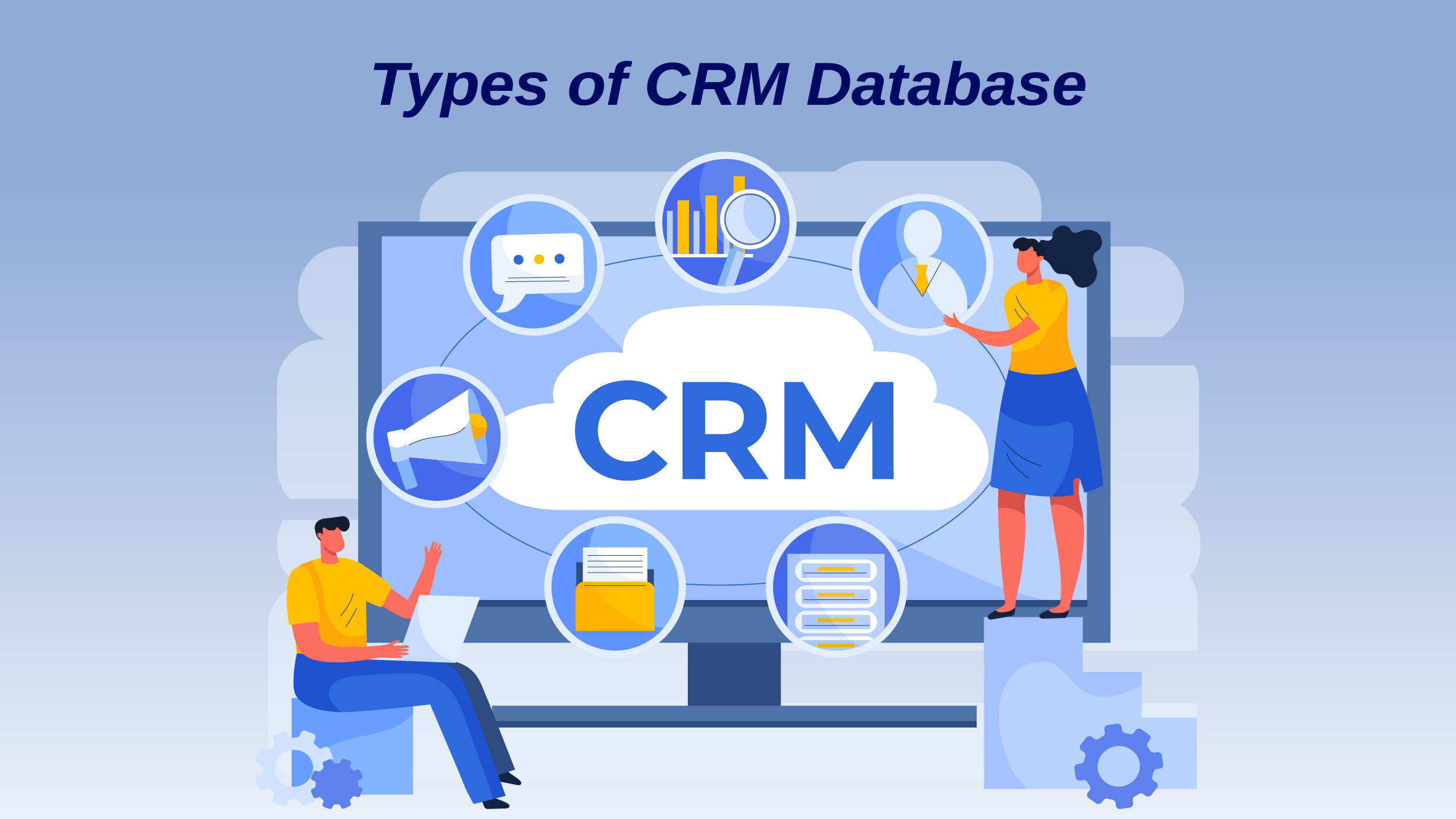Ever find yourself drowning in a sea of customer information, desperately trying to keep track of who’s who and what’s what? Enter CRM databases – the unsung heroes of organized chaos in the business universe.
Picture this: Your customer relationships are like a complicated jigsaw puzzle, and you’ve been handed a box with no picture on it. Frustrating, right? That’s where this amazing tool swoops in like the superhero sidekick you never knew you needed. Let’s talk more about this essential solution in this ultimate guide.
What is a CRM Database?
Customer relationship management (CRM) systems manage and enhance customer interactions throughout the sales cycle. They are widely used by businesses to connect with customers, exceed expectations, and benefit various departments, including marketing and customer support. The CRM database, or customer profile, contains information such as name, job title, location, contact history, and other relevant data.
The utilization of CRM tools is prevalent in 91% of companies with 10 or more employees. Among these organizations, 74% claim that the implementation of CRM software has provided them with enhanced accessibility to customer data.
Benefits of Having a Well-Optimized CRM Database
The true strength of a CRM system lies in its capability to retrieve accurate information from a reliable source and deliver it to the appropriate customer at the right moment. The following are three advantages associated with a well-maintained CRM database:
● Tailored Customer Experience
To succeed in marketing, it is crucial to have a deep understanding of your target audience and the specific products or services you plan to promote in future campaigns, discounts, or rewards. This valuable knowledge can be obtained through a comprehensive, well-managed CRM database. By having a centralized repository of accurate and up-to-date customer and lead information, marketing teams can effectively deliver personalized experiences that align with the rising expectations of the audience.
● Prompt Sales Operations
Good CRM systems effectively manage and arrange contact details. Mobile salespeople and marketers can conveniently access comprehensive client information from a single source. The key to maintaining accurate and current customer data lies in utilizing a CRM database capable of handling multiple data streams and integrating them seamlessly.
● Governance to Ensure Privacy and Access
Customers and regulators expect careful management of information for privacy and data access. A data breach not only requires compensating for leaked data but also rebuilding a positive relationship. Compliance with regulations like GDPR and the California Consumer Privacy Act is crucial, as non-compliance leads to hefty fines. A robust CRM system ensures thorough tracking of customer data, ensuring both access and privacy.
Also Read: Top 3 Influencer Marketing Platforms Every Marketer Should Know About in 2024
Types of CRM Database
 Listed below are the 3 key types of CRM database systems.
Listed below are the 3 key types of CRM database systems.
1. Open Source CRM Systems
Open source CRM systems, available online, offer customizable solutions downloaded and installed on company servers. While cost-effective with free options, they may require substantial customization efforts. Companies must handle installation, management, and customization, necessitating expensive hardware and dedicated IT professionals. Data security measures are also the responsibility of the companies using open source CRM.
2. On-premise
Similar to open source solutions, on-premise solutions are hosted on the company’s own servers. However, they also necessitate dedicated hardware and IT personnel to handle, operate, and upkeep the CRM software. Unlike free open source CRM systems, on-premise alternatives can offer greater functionality and a wider range of features. Nevertheless, it is important to note that on-premise solutions are the costliest CRM options with a significant upfront payment required for software purchase.
3. Cloud-based CRM
Cloud-based CRM offers a quick and easy way for companies to implement CRM without managing the software themselves. It operates on the provider’s servers, eliminating the need for companies to maintain their own servers or IT teams. Security is robust, supporting constant monitoring and enterprise-grade protocols. Users can access the system from anywhere with an internet connection, and the pay-as-you-go model allows flexibility in adding or removing features as needed.
Popular CRM Databases
If you’re in search of a CRM database system that can enhance your sales, marketing, and customer retention strategies, we have three widely recognized choices that you might find useful.
1. Salesforce
Salesforce CRM, a prominent player in the market, provides a wide range of CRM products tailored to specific industries. Additionally, it offers cutting-edge sales functionalities that leverage social media data to effectively generate leads and enhance overall sales performance.
2. Zoho
Zoho provides businesses with the ability to offer tailor-made CRM systems that are both user-friendly and personalized to meet their specific requirements. Additionally, the platform offers a set of intuitive automation tools that effectively streamline processes and reduce the need for manual, repetitive tasks.
3. Freshworks
This cost-effective CRM solution revolves around effective communication and teamwork. By offering customized email campaigns, deal management, and revenue forecasting capabilities, it empowers teams with valuable data to enhance decision-making.
Winding Up
CRM databases serve as invaluable tools for businesses, streamlining customer interactions and enhancing overall efficiency. With the ability to centralize and analyze data, companies can make informed decisions, strengthen customer relationships, and adapt to evolving market demands. The dynamic capabilities of CRM systems not only optimize internal processes but also contribute significantly to long-term business success. Embracing this technology empowers organizations to stay competitive, foster growth, and ultimately provide exceptional customer experience.


Comments are closed.